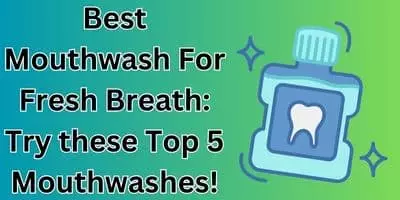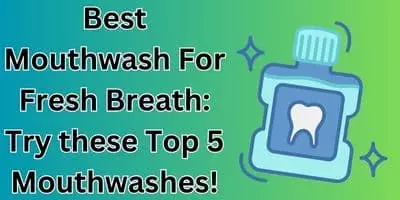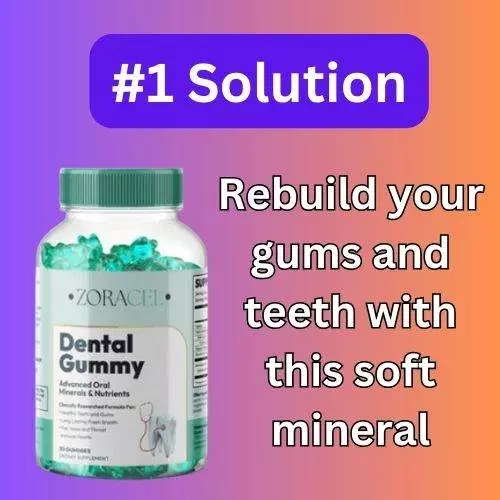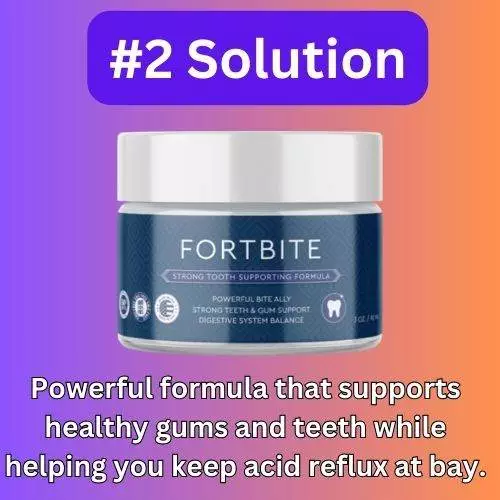

Top mouthwashes for fresh breath
The Significance of Fresh Breath
Fresh breath is not just about social interactions; it’s also vital for maintaining optimal oral health. When your breath is minty and invigorating, it not only boosts your confidence but also encourages a healthier mouth environment. On the flip side, dealing with bad breath, or halitosis, can be embarrassing and may even pose risks to your personal relationships.
From a dental perspective, fresh breath signifies that your mouth is free from harmful bacteria that could lead to cavities and gum disease. Using an effective mouthwash regularly can help in fighting these germs and preventing oral issues.
Mouthwash plays a crucial role in daily oral care routines as it complements brushing and flossing by reaching areas that are hard to clean with just a toothbrush. By incorporating mouthwash into your routine, you ensure comprehensive protection against plaque buildup and gingivitis.
Aside from its hygienic benefits, using mouthwash provides a refreshing sensation that leaves you feeling fantastic throughout the day. The minty flavors offered by different brands make the experience enjoyable while promoting long-lasting freshness.
Choosing the Ideal Mouthwash for Fresh Breath
Selecting the best mouthwash for fresh breath is crucial in maintaining optimal oral health. As an expert in oral hygiene, I understand the importance of finding a mouthwash that not only fights bad breath but also promotes overall dental health.
Essential Ingredients:
- Look for mouthwashes with antibacterial agents like cetylpyridinium chloride (CPC) or essential oils such as eucalyptol, thymol, and menthol. These ingredients effectively combat bacteria in your mouth, reducing halitosis.
- Choose a mouthwash with anticavity properties. Look for fluoride-based options to protect against tooth decay and cavities.
- Consider peroxide-based formulas as they are proven to oxygenate your mouth and eliminate germs that contribute to bad breath.
Alcohol Content:
While alcohol is commonly found in many commercial mouthwashes due to its antiseptic properties, excessive use can lead to dryness in the oral cavity over time, exacerbating bad breath and causing discomfort for individuals with sensitive gums or dry-mouth symptoms.
Flavor Selection:
Opt for minty flavors like peppermint or spearmint if you enjoy a cool and refreshing sensation after rinsing. Alternatively, some brands offer unique flavors like cinnamon or citrus for those seeking something different.
By considering these factors when choosing a mouthwash for fresh breath, you can ensure that it meets all your needs while providing long-lasting freshness throughout the day.
Top Mouthwashes for Fresh Breath: An Expert Review
Choosing the right mouthwash is vital in maintaining fresh breath and overall oral health. As an expert in oral hygiene, I have extensively tested and reviewed numerous mouthwashes to bring you a list of the top options available on the market.
1. SmartMouth Clinical DDS Activated Oral Rinse
This fantastic mouthwash is formulated with zinc ion technology that eliminates bad breath germs by targeting sulfur compounds at their source. It provides long-lasting freshness and has been proven to be effective against halitosis, or chronic bad breath. The minty flavor leaves your mouth feeling invigorated and refreshed. Click here to check it out.�
2. Colgate Total Advanced Pro-Shield Mouthwash
Colgate’s trusted brand reputation shines through with this alcohol-free rinse that fights bacteria causing plaque, gingivitis, cavities, and bad breath while providing 12-hour protection against germs. Click here to check it out
3. TheraBreath Fresh Breath Oral Rinse
TheraBreath offers a comprehensive solution for treating bad breath with its oxygenating formula that neutralizes odor-causing bacteria without using alcohol or artificial flavors. TheraBreath comes in different flavors. This dentist-formulated rinse is ideal for those with sensitive gums as it contains no harsh ingredients. Click here to check it out
4. Crest Pro-Health Multi-Protection Mouthwash
Crest’s fluoride formulation not only freshens your breath but also helps prevent cavities, gingivitis, and plaque buildup. Its refreshing cool mint flavor leaves your mouth feeling clean and revitalized. Click Here to Check it Out
5. Listerine Cool Mint Antiseptic Mouthwash
Listerine’s powerful antiseptic properties kill germs causing bad breath while reducing plaque and gingivitis. The cool mint flavor provides a refreshing sensation, leaving your mouth feeling clean and invigorated. Check Out Listerine Mouthwash Here
Each of these top-rated mouthwashes offers unique features catering to different needs such as long-lasting freshness or specific oral health benefits. Remember to consult with your dentist before incorporating any new product into your oral hygiene routine for personalized recommendations based on your specific dental needs.�
How to Use Mouthwash Effectively for Fresh Breath
Achieving fresh breath and optimal oral health requires using mouthwash effectively. Here’s a step-by-step guide to help you make the most of your mouthwash:
- Choose the best mouthwash: Select a mouthwash specifically formulated for fresh breath, containing fluoride, antibacterial agents, or oxygenating compounds.
- Read the instructions carefully: Each product may have specific guidelines on dosage and duration of rinsing.
- Measure the right amount: Pour around 20-30 milliliters (about one ounce) into a cup or cap provided with the product.
- Rinse thoroughly: Swish it around your mouth for about 30 seconds to one minute, reaching all areas including teeth, gums, tongue, and cheeks.
- Spit out excess liquid: Avoid swallowing as some products contain alcohol or other chemicals not meant to be ingested.
- Don’t rinse with water immediately after: Allow active ingredients in the solution to continue working on your teeth and gums by refraining from rinsing with water immediately after use.
- Maintain regular brushing and flossing routine: While effective mouthwash contributes significantly to fresh breath maintenance, it should never replace regular brushing and flossing habits essential for overall oral health.
Common Mistakes to Avoid:
- Using too much or too little
- Swallowing the mouthwash
- Rinsing with water immediately after
- Using expired products
Additional Tips:
- Use mouthwash at least twice a day.
- Maintain consistency.
- Consult your dentist if you have specific concerns about bad breath or any underlying dental issues.
By following these guidelines and avoiding common mistakes, you can ensure that you are getting the most out of your chosen mouthwash for fresh breath maintenance.
Frequently Asked Questions about Mouthwash and Fresh Breath
As an oral hygiene expert, I understand that there may be some common questions and misconceptions surrounding mouthwash and its role in maintaining fresh breath. In this section, I will address these concerns and provide expert answers and advice.
1. Is mouthwash necessary for fresh breath?
While brushing your teeth twice a day is essential for good oral hygiene, using the best mouthwash can provide additional benefits. It helps to kill germs that cause bad breath, leaving your mouth feeling minty fresh and invigorated. It can also reach areas of the mouth that may be missed by brushing alone.
2. Can mouthwash treat halitosis (chronic bad breath)?
Mouthwash can help temporarily mask bad breath caused by certain foods or drinks, but it is not a long-term solution for chronic halitosis. If you are experiencing persistent bad breath, it is important to identify the underlying cause with the help of a dentist or healthcare professional.
3. What ingredients should I look for in a mouthwash?
When choosing an ideal rinse for fresh breath, look for products that contain antibacterial agents such as cetylpyridinium chloride or chlorhexidine gluconate. These ingredients effectively kill germs and reduce plaque buildup while providing fantastic freshness.
4. Does alcohol-free mouthwash work as well as those containing alcohol?
Alcohol-free rinses are just as effective at killing bacteria without causing dryness or irritation commonly associated with alcohol-based solutions. They are also suitable for individuals with sensitive gums or those who prefer to avoid alcohol-based products.
5. How often should I use mouthwash?
It is generally recommended to use mouthwash once or twice daily after brushing your teeth. Be sure to follow the instructions on the product label for specific usage guidelines.
6. Can children use adult-mouthwashes?
Adult-mouthwashes may contain higher concentrations of certain ingredients that could be harmful if swallowed by young children. Consult with pediatric dentists before treating kids.
7. Can Mouth Wash Replace Brushing And Flossing?
While multi-benefit rinses can provide additional benefits, they should not replace regular brushing and flossing because they’re vital in preventing cavities and gingivitis.
8. Are There Any Side Effects Of Using Mouth Wash?
Some individuals may experience temporary side effects such as mild irritation when using certain types of rinses. Always consult with dental professionals if any discomfort occurs.
9. Can I Use Mouth Wash If I Have Sensitive Teeth Or Gums?
Yes! There are specially formulated rinses available that cater to individuals with sensitivity issues while still fighting germs and improving overall oral health.
10. How Long Should You Swish The Rinse In Your Mouth For Best Results?
Most manufacturers recommend swishing oxygenating formulas in your mouth for 30 seconds to 1 minute before spitting out. Always refer back to specific instructions provided by each product used.
By addressing these frequently asked questions about top-rated anti-cavity solutions, we hope we’ve provided clarity on their role in maintaining fresh breath and overall oral hygiene from experts’ perspective. Remember to always consult dental professionals if you have any specific concerns regarding your oral health routine.










